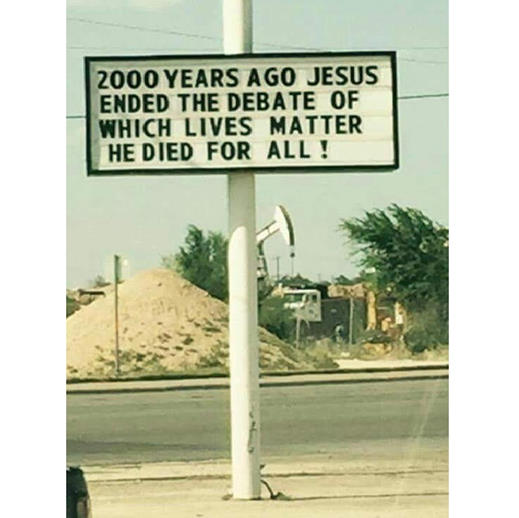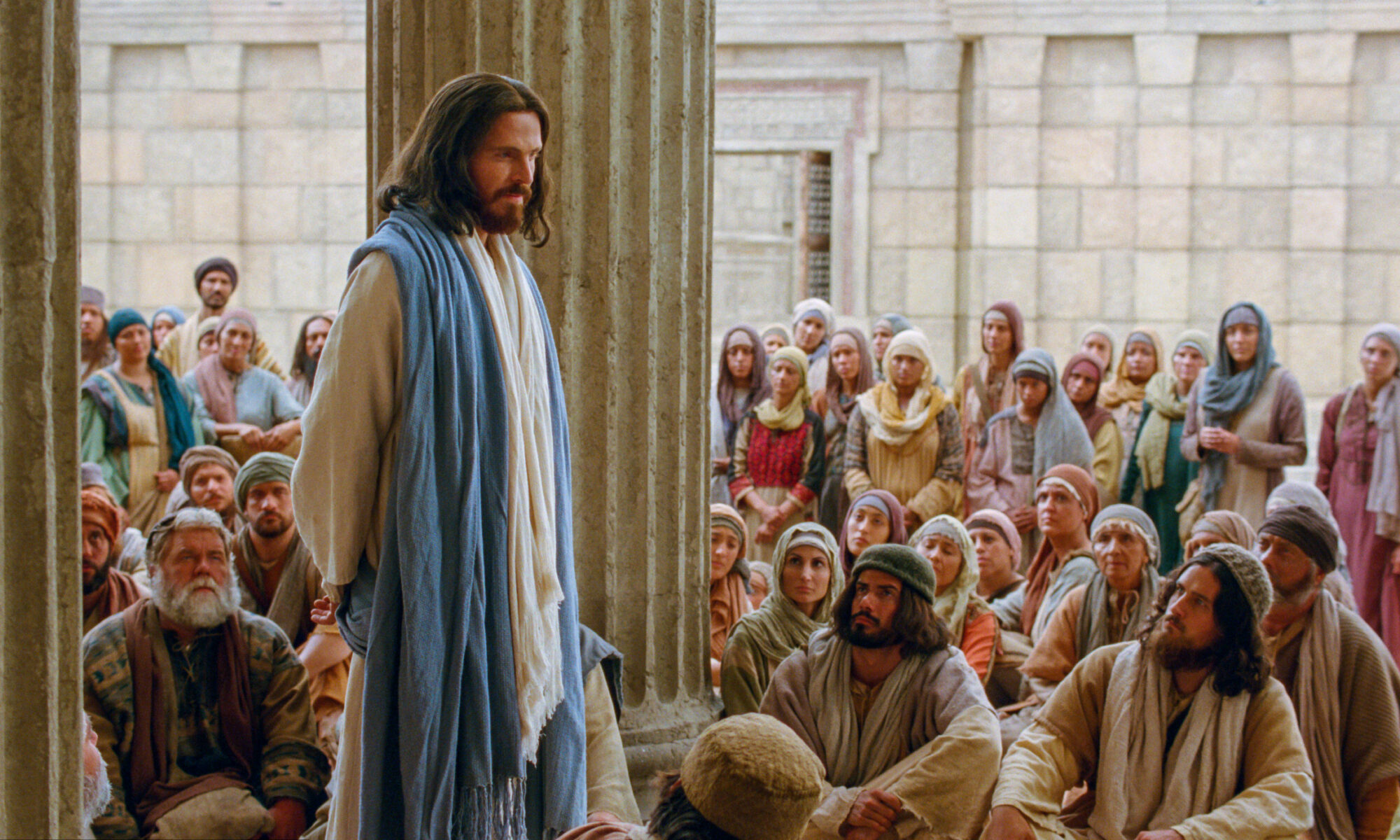
I have seen this photo a few times on social media, reminding us that Jesus showed us that all lives matter because he died for all, so debate over, right?! Yes, Jesus did indeed die for all, and he extended his love to all mankind. But as I reflect on this idea today I ask myself just how it was that he taught that message to the people of his day?
Jesus was a Jew born into the land of Israel, and he knew the Law of Moses backwards and forwards; a law that had guided the Jewish people for over 1500 years. A law that Jesus said he did not come to preach but to fulfill. Instead he constantly vilified the religious leaders of the day who used that law to control the people they were charged to teach and lead in the ways of God.
The law stated that an adulteress must be put to death, heck that one even merited a solo commandment ahead of time. So, the religious leaders dragged a woman caught in adultery before Jesus and asked, knowing the law, what they should do with her? (BTW, the law talks about men and women being put to death and there was no man here – just saying). No one knows what Jesus scribbled in the sand in the next moments, but when he was done all who brought her there were gone and he was with her alone. He told her that as her accusers no longer exist neither would he accuse her. In that moment he taught us that Sinners Lives Matter, and more so given the circumstances, Women’s Lives Matter.
The law required those with diseases such as Leprosy to wear torn clothes and to shout “Unclean!!” as people would come near them, for they would defile the person just by their presence. They were made to live outside the cities in squalor because they were viewed as subhuman. And yet Jesus willingly defiled himself in the eyes of the law when a leper approached him and asked for healing. Jesus healed the leper. Not to make him worthy of the rest of Jewish society but to show us that Lepers Lives Matter.
Tax collectors in Jesus’ day worked for the Romans. They were Jews who forced their own people to pay the Roman tax, and many would take money on top of what was due the Romans to make themselves rich. And yet Jesus chose one, Matthew, as one of his closest followers. He visited the home of Zaccheus, an infamous tax collector who repented and restored double to those he had stolen from. And when he spoke of prayer he talked about the Publican (Tax Collector) and the Pharisee (Religious Leader) who both went to the Temple to pray. The Publican beat on his chest in repentance, the Pharisee thanked God that he wasn’t a Publican. Jesus said only the Publican’s prayer was righteous before God, showing us that Tax Collectors Lives Matter.
The Golden Rule, “love your neighbor as yourself”, is often tied with the idea that, “All Lives Matter”. And while it perhaps should, that’s not how Jesus illustrated it. As Jesus is preaching he says that the two most important commandments are “Love God with all your heart” and “Love your neighbor as yourself”. A teacher of the Law then asks him, “And who is my neighbor?” Jesus goes on to tell the parable of the Good Samaritan. In it a Jewish man is robbed and lays dying on the side of the road. First a Temple Priest comes upon him and, knowing that touching him would “defile” him for 7 days making him unable to serve, he goes to the other side of the road and does nothing. Similarly, a Levite (a Temple worker) sees him and does the same for the same reasons. Finally, a Samaritan comes by. Now to understand what a Samaritan was to a Jew think about Martin Luther and the Protestant Reformation. Samaritans were to the Jews as Protestants were to the Catholic Church back in the days of the Inquisition – they were despised because they had changed their religious laws and principles. Jesus tells us that the Samaritan took pity on the man, brought him to safety, and paid for his care. Only the Samaritan was a neighbor to man. He showed us that Samaritan Lives Matter (as he later did with the Samaritan woman at the well).
In his day children were to be seen not heard, so it was no surprise that his own disciples shooed away the children who wanted to be with him. But Jesus said, “Let them come to me”, because Kids Lives Matter.
It goes on. He heals the crippled beggar shunned in the town square because Crippled Lives Matter. When asked who had sinned so that a man was born blind (implying he was blind because of sin) he did not answer and simply healed the blind man because Blind Lives Matter.
Finally, in the parable of the Sheep and Goat, which speaks of God’s final judgement of man, he says, “Then the King will say to those on his right, ‘Come, you who are blessed by my Father; take your inheritance, the kingdom prepared for you since the creation of the world. For I was hungry and you gave me something to eat, I was thirsty and you gave me something to drink, I was a stranger and you invited me in, I needed clothes and you clothed me, I was sick and you looked after me, I was in prison and you came to visit me.’” In that single paragraph he is saying that those who are worthy are those who lived lives that said Poor Lives Matter, Sick Lives Matter, Immigrant Lives Matter, and Prisoners Lives Matter.
The one story I cannot find Jesus saying among all these others is one that says, “Jewish Lives Matter”. Why? Because as a Jew living among the Jews he saw the implicit privilege they all had in their society; a privilege that caused them to look down on sinners, women, lepers, tax collectors, Samaritans, children, the disabled, the poor, the sick, the imprisoned, and the foreigner. And he reviled and cursed at those who lead the Jewish people, because they exploited their privilege and built a power structure on the backs of these others. But even in doing that he never once implied that Jewish lives didn’t matter. Yet ultimately that’s what the leaders accused him of and they had him crucified for it.
So white, Christian friend, when you see me remind you that Black Lives Matter, please leave Jesus and “all lives” out of this. For he spent his 3 years of ministry showing us time and again that all lives do not truly matter when some lives matter far less than others.

